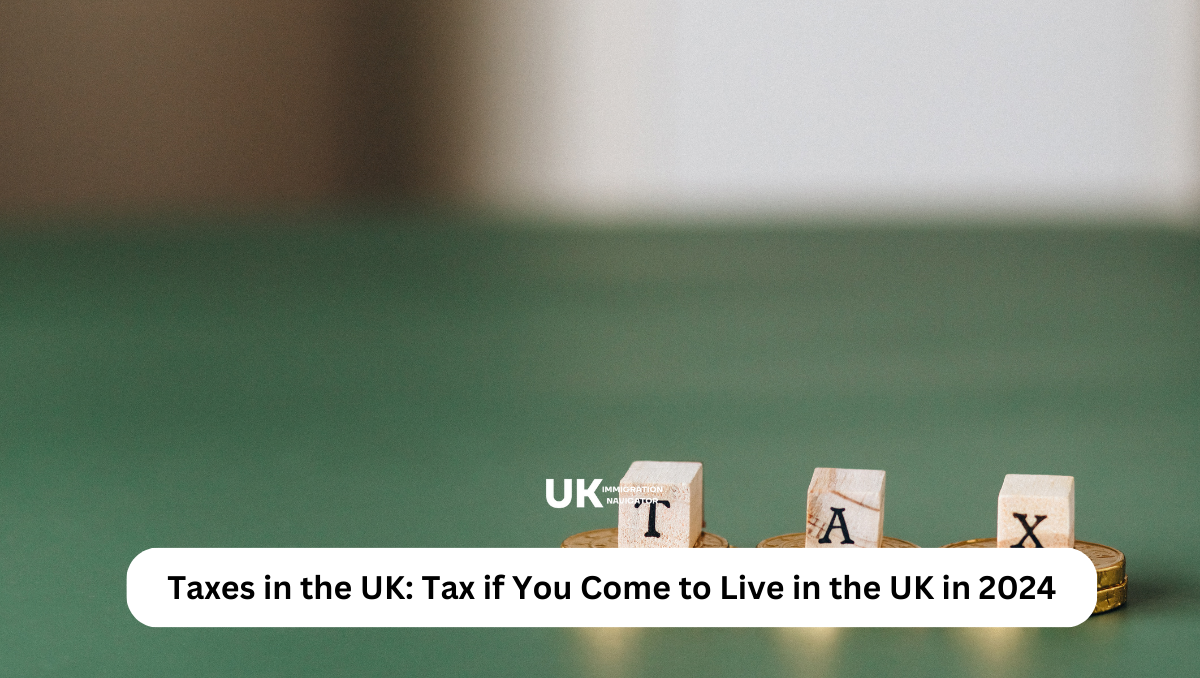Taxes in the UK is an exciting journey filled with new experiences and opportunities. However, one crucial aspect to understand is the UK tax system. Let’s break it down step by step to make it easier for you.
Understanding the taxes in the UK
The UK tax system is overseen by HM Revenue & Customs (HMRC). It’s a comprehensive system that covers various types of taxes, including income tax, National Insurance Contributions (NICs), capital gains tax, inheritance tax, and more.
Resident and Non-Resident Status
Your tax obligations in the UK depend on your residency status. A person is considered a UK resident for tax purposes if they meet certain criteria outlined by the Statutory Residence Test. If you spend 183 days or more in the UK within a tax year, you’re generally considered a resident. Your residency status affects how much tax you pay and on what income.
READ ALSO: Hotels Careers
Table of Contents
Income Tax
Income tax in the UK is levied on earnings such as wages, salaries, and pensions. Here’s a quick overview of the income tax rates and bands for 2024:
- Personal Allowance: Up to £12,570 (tax-free)
- Basic Rate: 20% on income from £12,571 to £50,270
- Higher Rate: 40% on income from £50,271 to £150,000
- Additional Rate: 45% on income over £150,000
National Insurance Contributions (NICs)
NICs are contributions you make to qualify for certain benefits, including the state pension. There are different classes of NICs, but for most employees, Class 1 contributions are the most relevant. These are automatically deducted from your wages by your employer.
Capital Gains Tax
Capital gains tax is charged on the profit made from selling certain assets, such as property (other than your main home) or investments. The rates for capital gains tax depend on your total taxable income and the type of asset sold.
Inheritance Tax
An inheritance tax is a tax on the estate of someone who has died. The standard inheritance tax rate is 40%, but it’s only charged on the part of the estate that’s above the threshold of £325,000. Various exemptions and reliefs can reduce the amount owed.
Value Added Tax (VAT)
VAT is a tax on goods and services. The standard VAT rate is 20%, but there are reduced rates of 5% and 0% for certain goods and services. Businesses must register for VAT if their turnover exceeds a specific threshold.
Property Taxes
When you buy property in the UK, you may need to pay Stamp Duty Land Tax (SDLT). The amount depends on the property price and whether you’re a first-time buyer. Additionally, Council Tax is a local tax paid on residential properties, based on their value and the local council’s rates.
Double Taxation Treaties
Double taxation treaties are agreements between two countries to prevent individuals from being taxed on the same income in both countries. The UK has treaties with many countries, which can provide relief if you have income from abroad.
Tax Reliefs and Allowances
The UK offers various tax reliefs and allowances to reduce your tax bill. These include:
- Personal Allowance: The amount of income you can earn tax-free.
- Marriage Allowance: Allows one partner to transfer a portion of their allowance to the other.
- Pension Contributions: Contributions to a pension plan can be tax-deductible.
- Charitable Donations: Donations to registered charities can be tax-efficient.
Filing Tax Returns
Not everyone needs to file a tax return in the UK. Generally, if you’re an employee with simple tax affairs, your employer will handle your taxes through PAYE (Pay As You Earn). However, if you’re self-employed, have complex income sources, or need to claim certain reliefs, you’ll need to file a self-assessment tax return. Key deadlines include:
- Registration: By 5 October following the end of the tax year.
- Paper Return: By 31 October.
- Online Return: By 31 January.
Working with a Tax Advisor
Hiring a tax advisor can be beneficial, especially if you have complex tax affairs. A good advisor can help you navigate the tax system, ensure you claim all available reliefs, and file your returns accurately and on time. When choosing a tax advisor, look for qualifications, experience, and positive reviews.
Taxation on Savings and Investments
Income from savings and investments is also taxable in the UK. However, there are tax-efficient options like Individual Savings Accounts (ISAs) that offer tax-free interest, dividends, and capital gains.
Conclusion
Understanding the UK tax system is crucial when moving to the UK. By familiarizing yourself with the different types of taxes, reliefs, and filing requirements, you can better manage your finances and ensure compliance with HMRC regulations. Welcome to the UK, and here’s to a smooth transition!
FAQs
What is the tax-free personal allowance in the UK? The tax-free personal allowance for the 2024 tax year is £12,570.
Do I need to file a tax return if I’m employed in the UK? Not necessarily. If your tax affairs are simple and your employer handles everything through PAYE, you may not need to file a return. However, you will need to if you have additional income or need to claim certain reliefs.
How are pensions taxed in the UK? Pensions are considered taxable income. However, you can typically take 25% of your pension pot tax-free.
Can I get tax relief for charitable donations? Yes, donations to registered charities can qualify for tax relief under Gift Aid.
What happens if I don’t pay my taxes on time? Failing to pay taxes on time can result in penalties and interest charges. It’s important to meet all deadlines to avoid these additional costs.

3 thoughts on “Taxes in the UK: Tax if You Come to Live in the UK in 2025”